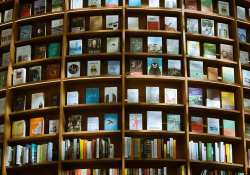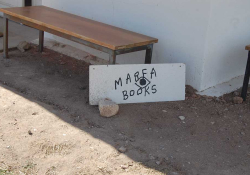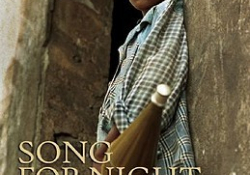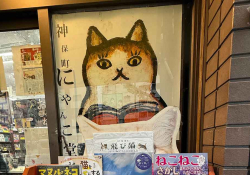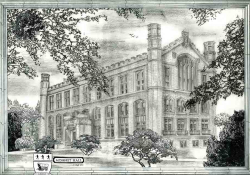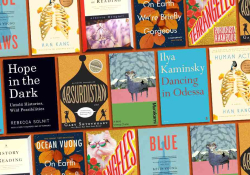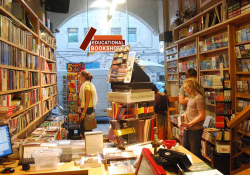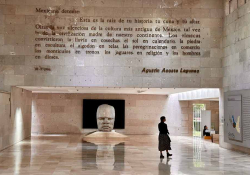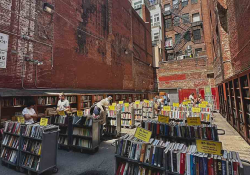Nuria: The Home of African Books

To reach Nuria, you must traverse the crowded streets of central Nairobi, dodging motorcycles and weaving in and out of traffic. From the street, you’ll enter Bazaar Plaza—a large, stone-gray, nondescript, multistoried building—and take the elevator up, passing through narrow hallways past shops where seamstresses make colorful saris or dresses in African prints and small-business owners offer hair or skin products.
And there it is: Nuria, the small bookstore with an outsized collection of books you won’t find anywhere else in the world.
Established in 2015, Nuria is one of a handful of independent bookstores in Nairobi, Kenya, but it uniquely focuses on curating books by Kenyan authors—classics and newly published books alike. It is, as its director Bulle Abdullahi described to me, “a gateway” to Kenyan literature. “What sets Nuria apart is its commitment to amplifying these authentic voices, particularly those of Kenyan authors who may not have access to global platforms,” says Abdullahi.
That means that this compact space—well lit by natural light filtering through its many windows, and made spacious and inviting through its neatly arranged bookshelves—contains thousands of books, not only those by famous Kenyan authors like Ngũgũ wa Thiong’o but also books written by self-published Kenyan writers. Nuria has registered 1,600 books by self-published Kenyan authors.
Self-published, you say? Indeed.
Kenyan publishers face the same problems that small publishers face everywhere, and most of them focus on publishing nonfiction and textbooks in order to survive. Kenyan writers who pen genre and literary works, almost invariably, must self-publish in order to make their books available.
“We have tapped into this dynamic by embracing self-published authors, understanding that they often bring fresh, unfiltered perspectives that resonate with local audiences,” says Abdullahi. “Nuria’s approach fosters an ecosystem where Kenyan authors, whether self-published or traditionally published, can thrive side by side, allowing readers to access a wider range of voices.”
Many bookstores in the world rarely or never stock self-published books, but Nuria honors the reality that Kenyan writers face and gives all books—regardless of their publishing origins—the dignity they deserve. Nuria not only makes these books available—for most of these writers, the only place where their books are sold in a retail space—but it nurtures Kenya’s diverse literary scene by offering meet-and-greets, literary conversations, and book signings.
Fostering a deep connection between writers and readers is part of Nuria’s mission. “Our consistent focus on Kenyan literature not only boosts local authors’ careers,” Abdullahi says, “but also enriches the nation’s literary heritage, inspiring a new generation of writers and readers.”
I was personally delighted to purchase copies of Sexorcised, by Silas Nyanchwani; Confessions of Nairobi Women: True Stories Told to Joan Thatiah; and “The Cock Thief,” by Parselelo Kantai, a tiny but powerful short story sold in book form—all books I’d never have heard of if I hadn’t visited Nuria. Alongside those lesser-known books, I grabbed a copy of Out of Africa, by Isak Dinesen (Karen Blixen), which I’ve never read.
Running an independent bookstore is a challenge anywhere in the world. Nuria has found its niche, giving visitors the opportunity to discover new and underrepresented authors and to explore Africa’s evolving literary scene.
Not headed to Kenya anytime soon? Not a problem. No need to hop on a plane. Nuria offers global shipping. Have fun exploring . . .


